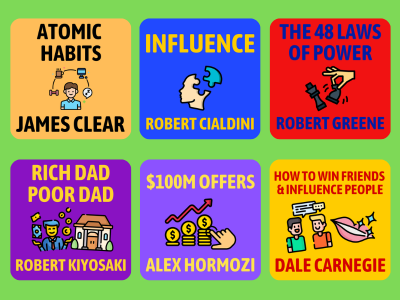Sapiens is about how we went from being simple primates 2.5 million years ago... to walking on the moon.
Yuval Noah Harari explores the Cognitive, Agricultural and Scientific Revolutions, which made us who we are today.
He says common myths like money, laws and nations hold human societies together.
The True Believer shows how the same human frustrations drive all mass movements—whether social, political or religious.
People join mass movements to escape their ineffectual and helpless individual self.
Eric Hoffer wrote this book 70 years ago, but it's still frighteningly relevant today.
The Autobiography of Benjamin Franklin is the life story of one of the Founding Fathers of America.
Franklin is often described as a "self-made man" and "The First American" because of his lifelong dedication to values like enthusiastic work, self-education and personal improvement.
The Emperor of All Maladies is about the incredible history of "The War Against Cancer" and helps us to understand this terrible disease.
Siddhartha Mukherjee explains the most common cancer treatments, including the science and story behind them.
Homo Deus offers a thought-provoking look into humanity's future; It talks about how advances in technologies like artificial intelligence and genetic engineering could radically transform us.
Yuval Noah Harari proposes the uncomfortable notion that we may try to become like gods to avoid death and unhappiness.
The 48 Laws of Power by Robert Greene is a self-help book that explains how powerful people have gained and maintained their control over the centuries.
While controversial for its manipulative tactics, this book also shares eye-opening insights into history, strategy, and human nature.











